On October 20, the well-known Abkhaz public figure Enver Erastovich Kapba would have turned 83 years old.
Arifa Kapba
The name of Enver Erastovich Kapba is traditionally associated with the town of Gagra, in which he was born, lived, and later built it and headed it, but few people know that the Kapba clan is from completely different lands.
His father, Erast, was from a large family, originally from the village of Arasadzykh of Ochamchira district. But after his sibling, Enver’s uncle, Leo Kapba moved to Gagra, Erast followed him. Erast Kapba was married to Lydia Jikia. Orphaned early, she was brought up in the house of Otar Achba in the village of Pakuash, Ochamchira district.
Abkhaz spirit in the family
They had four children - three sons and a daughter. The youngest of all was Enver Kapba. After the father of the family became seriously ill, all the worries about maintaining the family fell on the shoulders of her mother, Lydia Illarionovna, a woman who was naturally very intelligent and domineering.
“Of Mingrelian origin she was an Abkhaz by spirit, - says her daughter-in-law, the wife of Enver Kapba, Izolda Zvanbaya. - I remember when I entered this house, sometimes I didn’t understand her, she had such a broken Abkhaz, and I knew [only] Abkhaz everyday, and it was difficult at times to understand what she was talking about, but nonetheless she stubbornly spoke with her children only in Abkhaz and taught them all their native language. This is her great merit.”
All the children of Lydia Illarionovna studied brilliantly at school. Two older sons later became military doctors and rose to the ranks of colonels, the daughter learned to be a librarian.
Enver graduated from the Gagra Russian school in 1955, tried to enter a technical university in Moscow, but did not score the required points. It is interesting that at the same time in Moscow, his future wife Izolda, then still a very young girl, tried to enter a medical university and also did not score the required number of points. But they didn’t have the chance to meet in Moscow, their meeting later took place already in their native land, and closer communication took place even during the subsequent studies in Georgia.
Izolda Zvanbaya comes from the same Gagra. After 1937, when her father was repressed and shot, and the apartment was taken away, she and her mother and aunt went to live in Sukhum.
Enver and Izolda
So, not yet knowing each other, Enver and Izolda returned to Abkhazia and entered the Sukhum State Pedagogical Institute. They met later, when, like other students of the pedagogical institute, they received a “summons to the rectorate” of the university.
“We did not understand why they called us, I thought that they would take us to the collective farm, - says Izolda Alexandrovna. - I came, there were 11 of us, among them was Enver and Natela Shamba, later she became the head doctor of the Sukhum children's clinic, Eteri Snyada, now she lives in Sukhum, an ophthalmologist, Vakhtang Arshba, he became a prosecutor, and others. And we all stood and asked each other why they called us to the administration. And then we were informed that we all were given seats to study in Tbilisi. These were the first seats that Georgia sent to Abkhazia after the “Khrushchev thaw (the unofficial name for the ten-year period in the history of the USSR after the death of Joseph Stalin, characterized by a milder domestic policy and a condemnation of the Stalin’s “personality cult” - ed.).”
In Georgia, Enver Erastovich began to study at the Faculty of Civil Engineering of the Tbilisi Polytechnic Institute, and his future wife, Izolda Alexandrovna, chose to study at the medical faculty of the Medical Institute. While studying in Tbilisi, Abkhaz students, of course, closely communicated with each other. In addition, they were often gathered together by the famous Abkhaz composer Alexey Chichba, who studied at the conservatory there, who organized the Abkhaz Diaspora in Tbilisi.
After graduating from the institute and returning to Abkhazia, Enver Kapba first decided to fix the matters of the heart and marry a girl whom he had long liked. Many times he went with his friends to visit Izolda Alexandrovna in the town of Tkuarchal, where she got after the distribution institute. Izolda did not accept Enver's courtship for a long time, but he did not scare easy and somehow sent his sister and elder daughter-in-law to his chosen one. Together with the presents, the relatives brought the girl ... an engagement ring, which she eventually accepted. And, as she herself now admits, not once in forty-one years of married life did she regret it, having lived a “happiest life with Enver Erastovich.”
From master to engineer
Izolda Alexandrovna recalls that before the start of her husband’s dizzying career, they lived quite modestly in the Gagra. For a whole year he was not registered in his own house: at that time it was incredibly difficult for an Abkhaz to register in the town. A chance and straightforwardness came to Kapba’s aid.
“Here (in Gagra - ed.) was the Chairman of the District Executive Committee, Yuri Kvitsinia, - says Izolda Alexandrovna. - They met once, and my husband did not greet him, and he was surprised, asked, why you do not say hello. To which he received the following answer: what’s the reason to say hello to you when you don’t register me in my own house?” So the issue with registration was resolved.
Enver Erastovich’s career began at construction sites in the town of Gagra. He went from master, foreman to engineer, head of the construction department. Since 1966, Enver Erastovich was the head of construction management No. 5 of the “Pitsundstroy” trust.
“He didn’t have any “pushers” from behind and those who would pull him to the posts, - says Izolda Aleksanrovna, - he just showed himself as a competent worker who performed his duties perfectly, and this promoted him in the service.”
Pitsunda and Kosygin
Since 1970, for five years, he served as director of the Pitsunda Resort Boarding House Association, where he proved to be a bright and talented leader, taking care that the boarding house employees regularly went abroad for training and learned the “art of hosting guests” from the best masters.
Pitsunda in the career of Enver Erastovich played a decisive role. It was in this resort that prominent figures of the state and party elite of the USSR often rested. Significant was the meeting of Enver Erastovich with the famous Soviet state and party leader Alexey Kosygin. Close friendship was established between them for many years.
“Kosygin often came to his (spouse - ed.) office, but not through the main entrance, in such a way that no one would see him. He called him, I remember, Enver-Hodja. They often walked together, shared their thoughts. Kosygin often wondered if he needed any help, support,” the wife recalls.
But Kapba’s friendship with Kosygin, without even advertising, was impossible to hide.
“The Georgians were unhappy with what was happening, with these relations. As soon as they realized that the Soviet leadership was sympathetic to Enver Erastovich, they decided to remove him from Abkhazia and transferred him to Tbilisi as Secretary of the Council of Trade Unions of the Georgian Autonomous Soviet Socialist Republic,” explains Izolda Zvanbaya.
“But ... an Abkhaz”
The Kapba family lived in Tbilisi from 1975 to 1980, they were treated well: a luxurious apartment in a prestigious area, a summer house, a car.
They said about Enver Erastovich himself: “You are a man, Enver, but ... an Abkhaz.” And this “but” has always been preserved, emphasizes his wife.
However, Enver Erastovich himself, while in Tbilisi, did not get tired of emphasizing that he was an Abkhaz, and when they raised a toast to Georgia at the table, he would certainly raise his glass of wine for his small but dear to the heart Abkhazia.
“You see, enemies also respect courageous people, - the spouse notes. - When you start to grovel, nobody will respect you. And so he was never afraid to say that he was an Abkhaz, even among Georgians, even when our relations were already bad.”
In 1980, Enver Erastovich, leaving his family in Tbilisi - his sons studied at school there - returned to Abkhazia, he was elected first secretary of the Gagra municipal party committee. One of Kapba’s main achievements in this post was an unprecedented event at that time - the return of settlements to the original Abkhaz toponymy: as you know, many settlements of Abkhazia - villages during the period of “Georgianization” were renamed in the Georgian way. So, Kapba has achieved the return of Abkhaz names to them.
This is a bold and unprecedented act at that time. He was appreciated by another statesman, Anri Dzhergenia, about whom he writes in his memoirs for the newspaper “Republic of Abkhazia”: “At that time, a lot of people of Georgian nationality worked in the zone of the town of Gagra, including those brought from Georgian regions during the period of mass resettlement to Abkhazia. Some of them occupied leadership positions. They tried to prevent him from renaming. But Enver Erastovich called them to himself and forced them to change their names to Abkhaz ones, warning that otherwise they would be removed from work. And they had to obey.”
Anri Dzhergenia considers another significant achievement Kapba the upbringing of a whole galaxy of Abkhaz personnel - statesmen and leaders of various levels, whom he personally helped to get education, job, in general, helped them in every way when Abkhaz occupying leading positions caused anger and protests among Georgians.
“He was eager to transform the Gagra region, - says Izolda Alexandrovna. - He got up early in the morning at six o’clock, personally traveled around the town, watched whether lights everywhere were on, whether it was clean all around. I know that he dreamed of building a philharmonic society in Gagra, of arranging various music festivals in the park in Old Gagra, and on Mount Mamzyshkha he wanted to build magnificent hotels so that people having a rest in them could go down by cable car from mountains to the promenade.”
Enver Kapba once even shared his dreams about the future of his native Gagra in a conversation with Kosygin, who every time, visiting Abkhazia, visited a friend. But soon he was again transferred to Georgia. And Tbilisi was for Enver Erastovich, though privileged, but an exile.
There he became head of the socio-economic department of the Central Committee of the Communist Party of Georgia. “Once at a meeting he was reproached that he mostly sends cars and equipment to Abkhazia, although he was supposed to provide Kakhetia and Adjara, but they got the least,” recalls his wife.
Homecoming
Feeling that tension between Abkhaz and Georgians was increasing, Kapba returned to Abkhazia with his family. In 1991, he was appointed Deputy Chairman of the Government of the Republic, was elected as a Deputy of the Supreme Council of Abkhazia of several convocations.
An important part of the biography of Enver Erastovich Kapba was that in 1991 he was appointed by Vladislav Ardzinba as the head of the commission for the All-Union referendum on the preservation of the USSR. As you know, at that time Georgia said that Georgians were not going to participate in this referendum, and it was important for Abkhaz to express their opinion on this matter.
Here is how Anri Dzhergenia recalls these events: “Vladislav Grigoryevich told me that the leadership of the referendum should be entrusted to a patriot, a smart man of courage, a time-tested one, who, despite intimidation from Georgia, would organize this work. Knowing the activities of Enver Erastovich as the first secretary of the Gagra municipal committee, Vladislav Grigoryevich decided that he could be such a person. I attended his conversation with Enver Erastovich on this issue. Vladislav Grigoryevich said that this can be followed by undesirable consequences for Enver Erastovich, but he said that this was a necessary, state-owned matter, and he was ready to lead it.”
The referendum was held on March 17, 1991, and more than 98 percent of Abkhaz voted to preserve the Soviet Union.
Children and grandchildren - just like father and grandfather
During the Patriotic War of 1992-1993, Kapba was a deputy and was in Gagra. Two of his sons, Timur and Nuri Kapba, stood up to defend their homeland with weapons in their hands.
“Honestly, as a mother, I begged them not to go to war, but to go to Russia, - recalls Izolda Alexandrovna. - They deceived me, crossed the border, left, and then returned to Abkhazia on a barge and went to the front. Timur was a doctor and initially worked in a hospital, but then, to be with his brother, if he was injured, he also took up arms.”
After the war, Enver Erastovich for a long time led the Abkhaz Republican Communist Party. He died in April 2004. It so happened that in 2013 his eldest son Timur died tragically - he drowned at sea.
Today, there are five wonderful grandchildren in the family of Enver Erastovich and Izolda Alexandrovna, most of whom are already graduates and students of the most prestigious Russian universities, and the youngest is brilliantly studying at the Gagra School. All of them, I want to believe, will be wonderful successors to the traditions of their grandfather - a true professional and a great patriot.
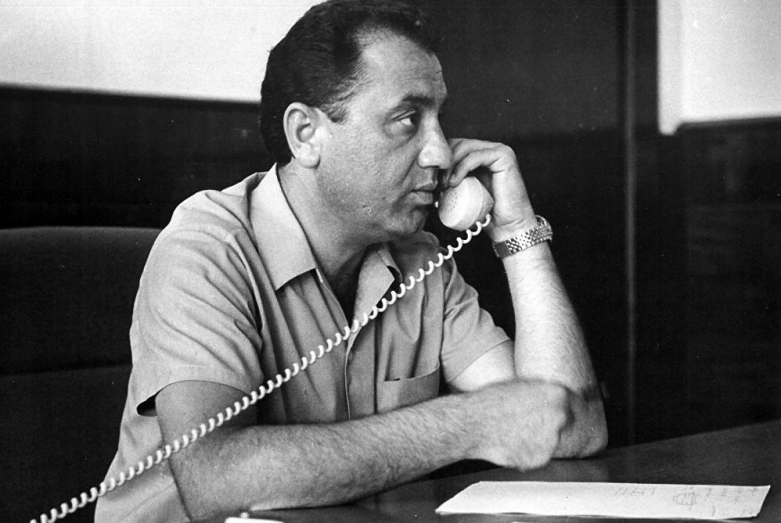
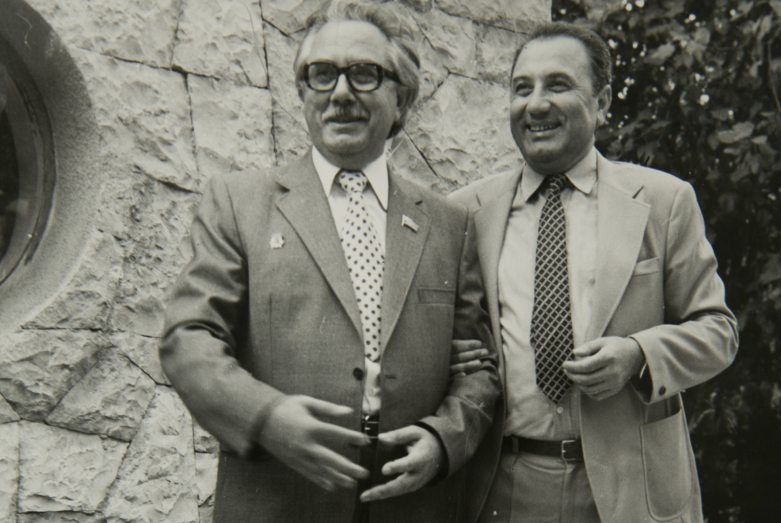
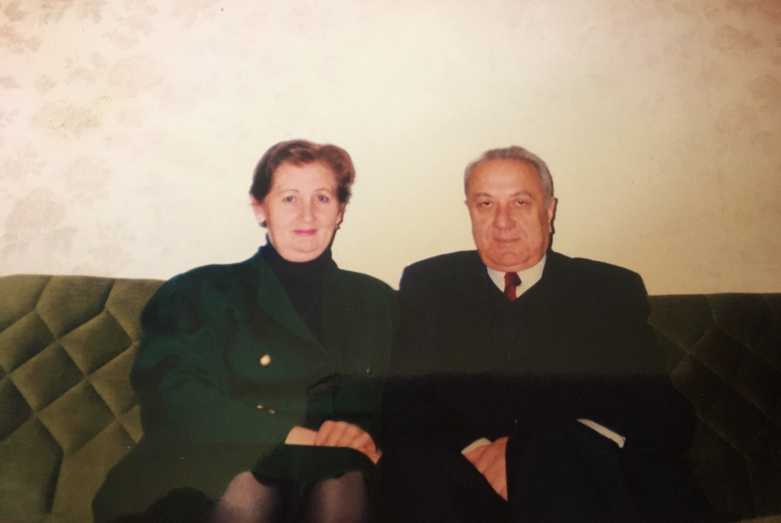
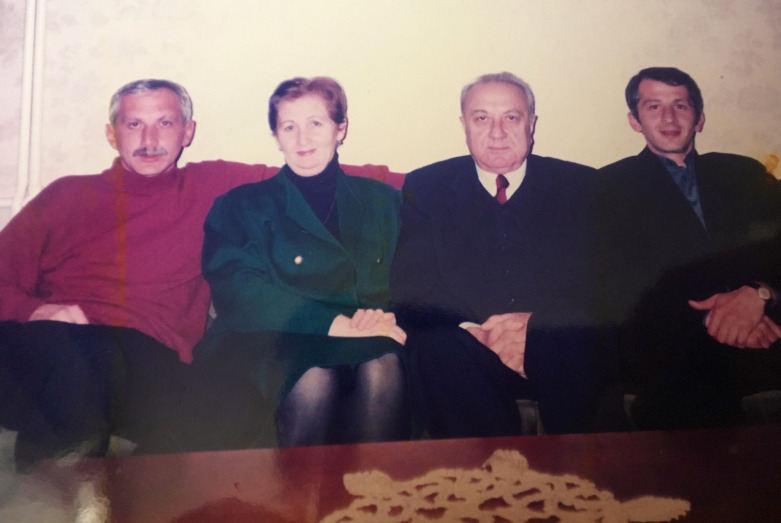
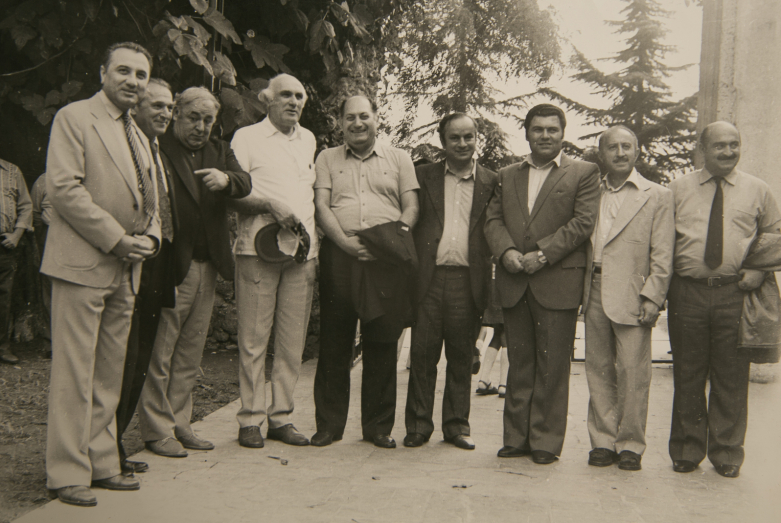
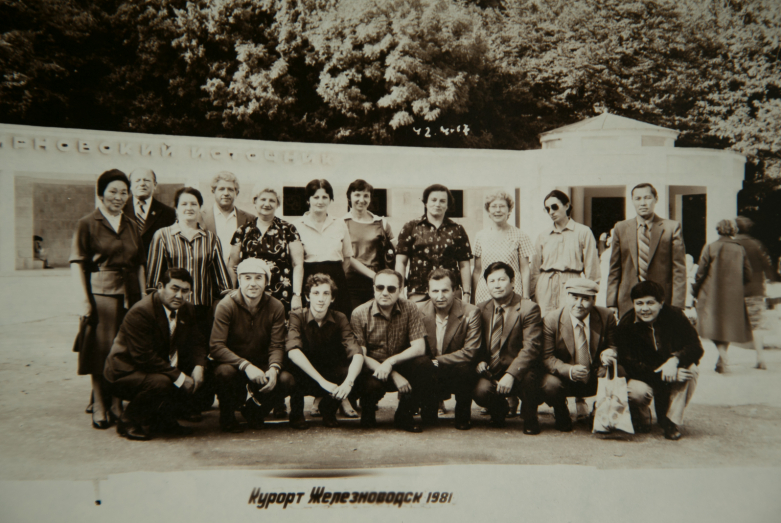
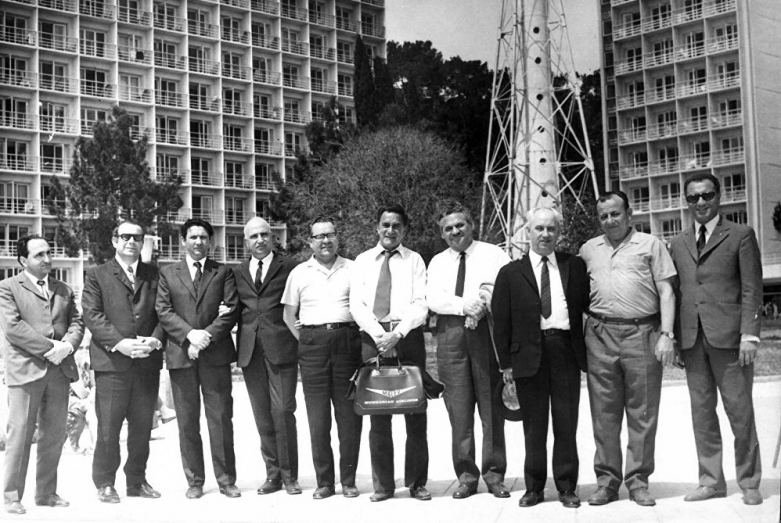
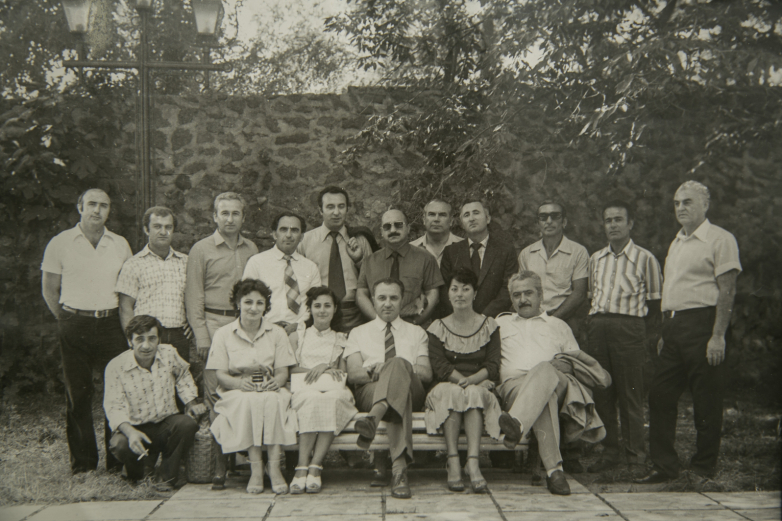
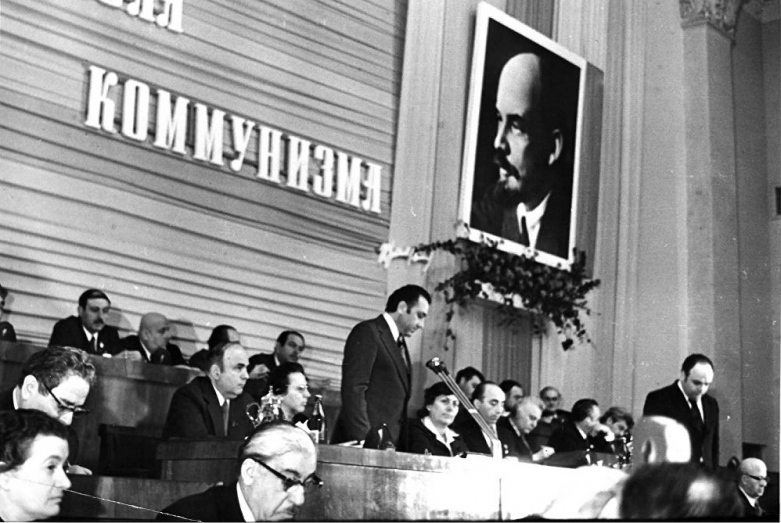
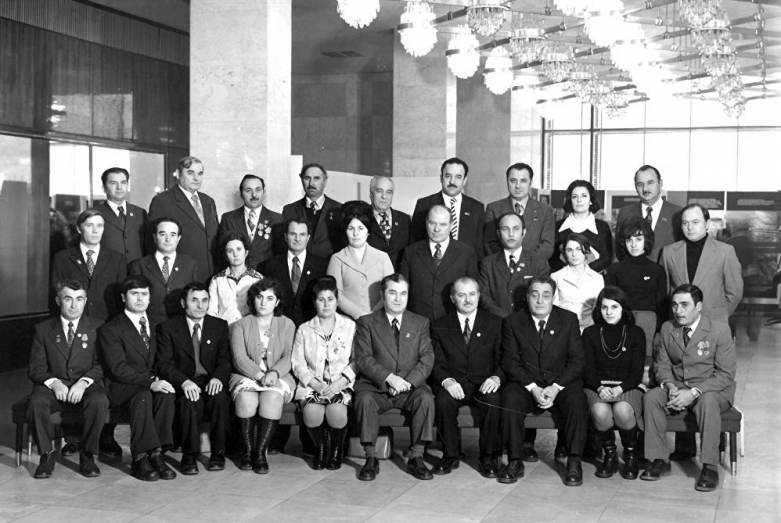
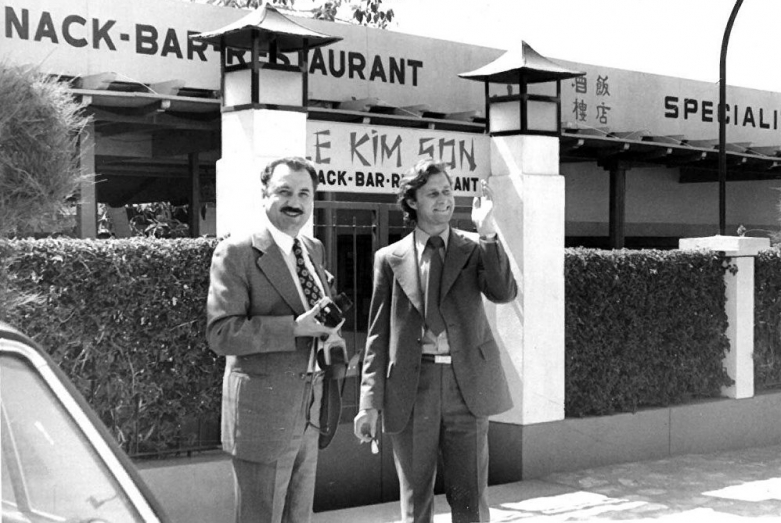
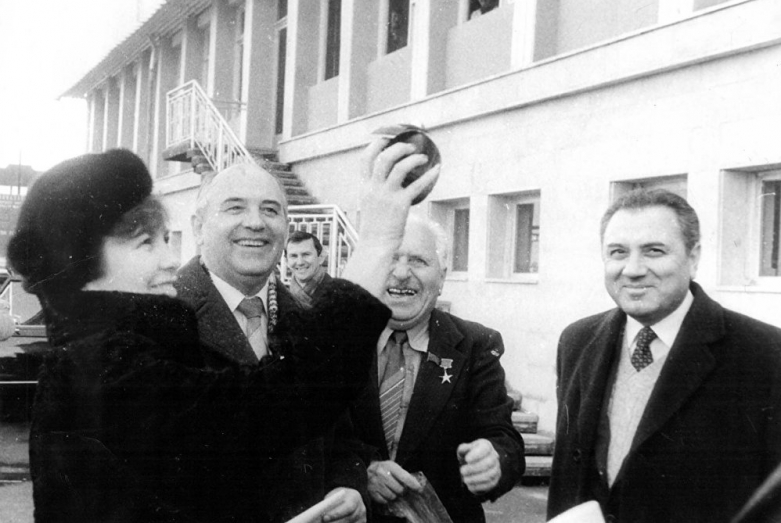
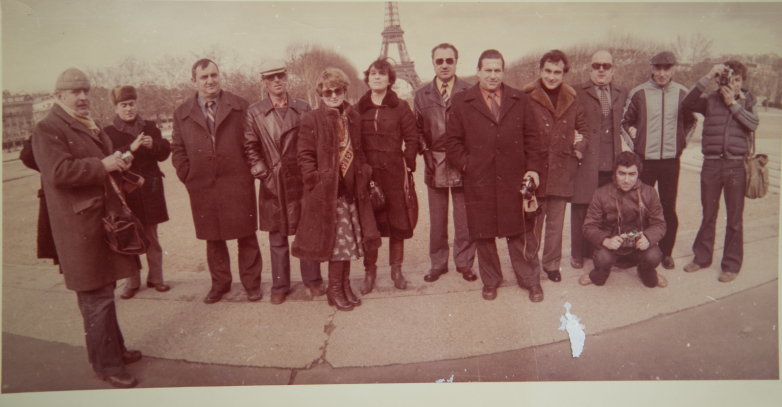
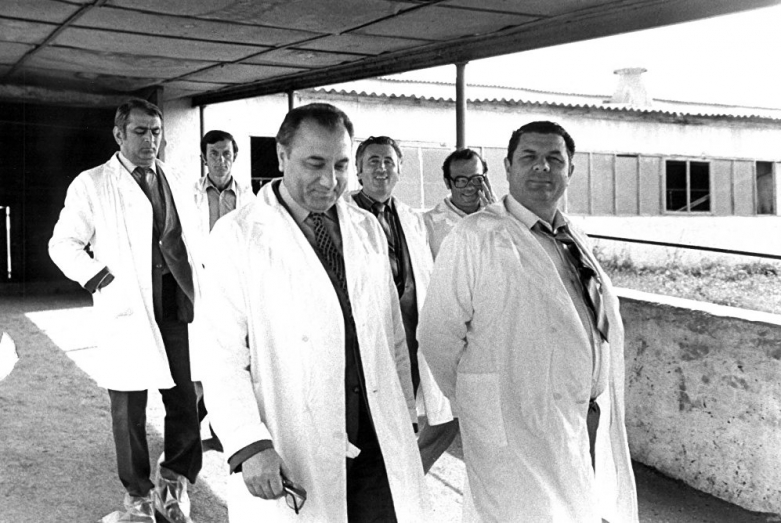
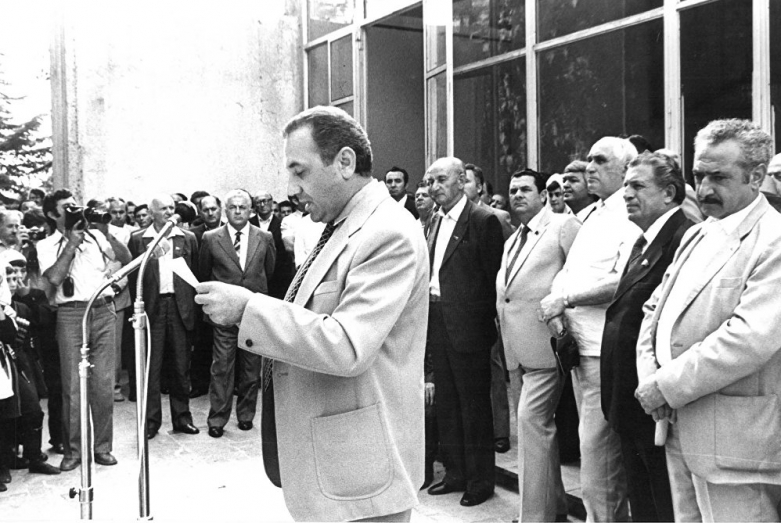
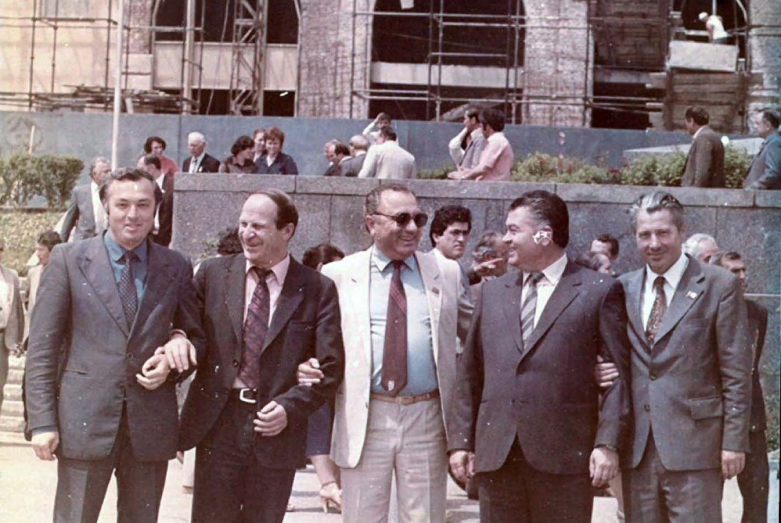
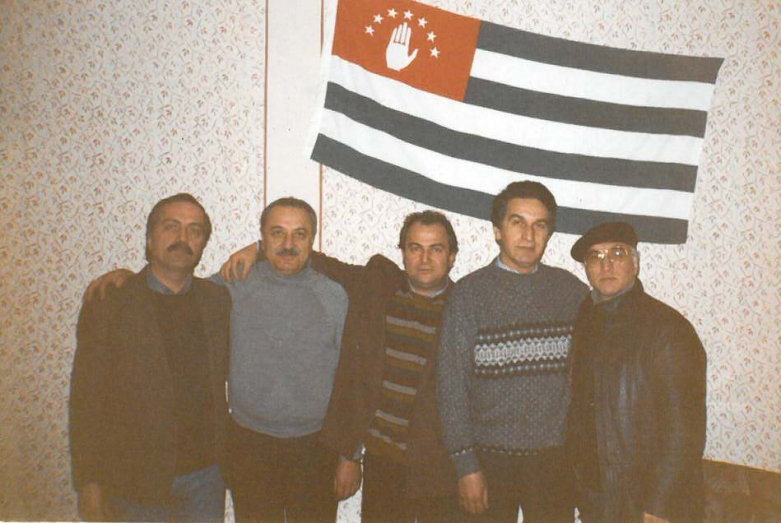
to login or register.